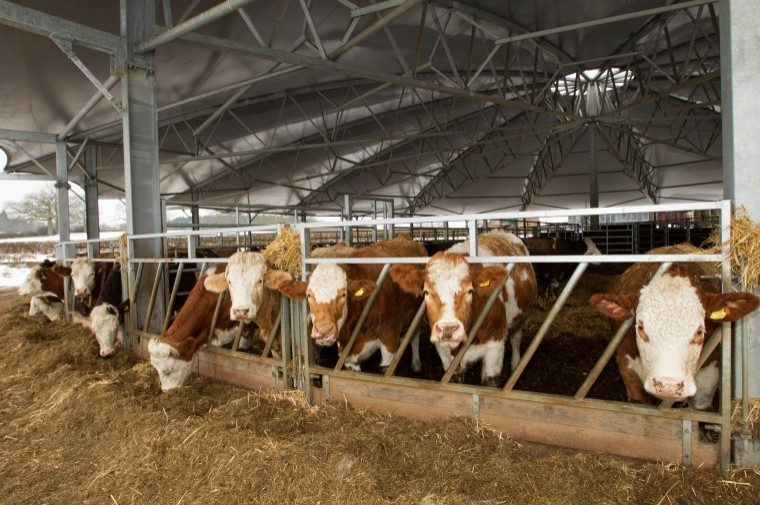Almost all the feed on two beef farms near Turners Hill and Lindfield in West Sussex is home grown.
“We try to grow everything ourselves,” said Alison Eggert-Hobbs who runs the farms with her manager, James Daw. “David Hendy is our nutritionist and he is very adamant that you must grow as much as possible to feed the cows rather than buying in.” The argument is that the approach is cheaper, it helps rumen development and ensures farmers know exactly where their feed is coming from. “We know we’re not feeding them with bread, Weetabix and other rubbish,” Ms Eggert-Hobbs added.
She is based at Fulling Mill Farm near Lindfield which her family bought in 1928. Her father David Hobbs was born in the farmhouse along with his brothers. He moved out to Home Farm, a 250 acre unit near Turners Hill. The two are farmed together with Fulling Mill Farm covering about 600 acres, including rented land. Pasture, beef animals and arable crops predominate across the two farms.
At Fulling Mill Farm, Mr Hendy does a twice yearly audit which tells Ms Eggert-Hobbs where she is going right and wrong. “In the past, we grew a lot more maize. But of course maize is a very expensive crop, and so we took quite a gamble last year and almost halved our maize area under Mr Hendy’s advice.” A lot of new leys were put in instead to improve the grassland. This provides more grazing for the cattle and better quality silage for feed.
The remaining maize covers 30 to 40 acres and is on a two year crop rotation before it goes back into arable cropping. “All of our maize ground from last year is now into oats – so I’m expecting an exceptional oat crop next year.” The land which was down to oats is now growing barley and this will go back into oats before a return to two years of maize. “We hope all the arable crops benefit from the muck from the cattle going on to the maize in the previous years,” Mr Daw said.
Oats are essential for building up the calves’ rumens, and a calf creep feeder filled with oats and a tiny bit of barley is out with the youngsters all summer. In the winter, the focus is more on barley in the feed to reduce acidosis.
Black grass has just started to creep in, so a return to a more traditional ploughing and drilling regime should help. Ploughing is essential in the small valley cradling Fulling Mill Farm between Lindfield and Ardingly which runs along the River Ouse. “Being on clay, if it turns wet we know we can plough and then drill straight away,” Mr Daw said. “If we were doing min till, we would have to spray it off and wait for a few weeks before min tilling again and then drilling. But we know that if the weather turns, we can plough one day and drill the next.”
<a href=”http://www.southeastfarmer.net/assets/flipbook/2016/SEF1216/SEF12Dec16.html>Click here to read the full farm visit




